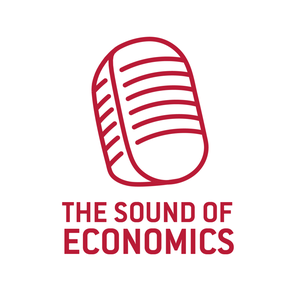
The Sound of Economics
Bruegel
The Sound of Economics brings you insights, debates, and research-based discussions on economic policy in Europe and beyond. The podcast is produced by Bruegel, an independent and non-doctrinal think tank based in Brussels. It seeks to contribute to European and global economic policy-making through open, fact-based, and policy-relevant research, analysis, and debate. "The Sound of Economics" is also a club on clubhouse. Join us there for participating in our live talks. The Sound of Economics is also part of EuroPod, a network of European podcast shows which brings together journalistic, cultural and institutional views on political and societal trends in Europe and beyond.
- 49 minutes 4 secondsZooming in on the US-China tech rivalryIn this episode of The Sound of Economics, Yuyun Zhan sits down with Alicia García-Herrero and Paul Triolo to discuss China’s innovation drive and how it compares with the US on key technologies, including semiconductors, green technology and biotech. They delve into how China climbed up the technology ladder, the impact of current geopolitical tensions and the outlook of US-China tech rivalry.
This episode is part of the ZhōngHuá Mundus series of The Sound of Economics. ZhōngHuá Mundus is a newsletter by Bruegel, bringing you monthly analysis of China in the world, as seen from Europe. Sign up now to receive it in your mailbox!24 April 2024, 12:36 pm - 36 minutes 25 secondsWhat visions for Europe? Unpacking EU parties’ economic strategiesBruegel and the Financial Times partnered up to host a debate featuring representatives from EU political parties on EU economic issues, specifically competitiveness and growth, economic security and green transition.
Rebecca Christie sits down with Bruegel Senior fellow Heather Grabbe, FT Europe correspondent Andy Bounds, also moderator of the debate, to unpack the views they gathered from the debate. What economic visions did the parties present? Are they impressed or convinced by some ideas? Listen to find out.
ICYMI, watch the debate recording here!18 April 2024, 1:05 pm - 40 minutes 54 secondsClimate change, the next big financial threatClimate change is a rising threat to European financial stability, says European Stability Mechanism chief economist Rolf Strauch on this episode of The Sound of Economics. Together with Bruegel non-resident fellow Stavros Zenios and host Rebecca Christie, Strauch discusses how the EU can rally to protect itself from future shocks and keep its sovereign debt backstops ready to meet future needs.17 April 2024, 9:34 am
- 32 minutes 31 seconds1982: the debt crisis that could have destroyed Western bankingScience Po professor Jérôme Sgard discusses his new book on the debt crisis of the 1980s on this episode of The Sound of Economics, with host Rebecca Christie and award-winning book author and journalist Paul Blustein. They explore the shockwaves that hit developing countries during this period, starting with the quasi-default of Mexico in 1982, as well as the Brady bond debt relief plan that followed. This podcast addresses the global impact of this this crisis and the subsequent recovery, along with what we can learn going forward.10 April 2024, 8:39 am
- 41 minutes 42 secondsOne grid to rule them all? The future of a European single electricity marketIn this episode of the sound of economics, Rebecca Christie invites Georg Zachmann and Christian Zinglersen to talk about the ambitious idea of creating a more integrated European electricity market. They discuss the drastic change in Europe’s energy outlook, as we switch from a world of fossil imports to mostly domestic electricity production. They address the benefits of a better-coordinated European energy system, as well as the need for improved communication between member states, harmonised market instruments, and joint investment in infrastructure to achieve greater efficiency and resilience. They lay out the complexity of this cross-sectoral challenge and stress that this needs strong political will and trust to move forward.
Relevant publication and event:- Zachmann, G., C. Batlle, F. Beaude, C. Maurer, M. Morawiecka and F. Roques (2024) ‘Unity in power, power in unity: why the EU needs more integrated electricity markets’, Policy Brief 2024/03, Bruegel
- Why the EU needs more integrated electricity markets, Bruegel event, 28 February 2024
3 April 2024, 8:06 am - 42 minutes 10 secondsCapital markets union - why now?European Union leaders want to breathe new life into the Capital markets union, the decade-old project to reduce fragmentation and put finance to work for the single market. In this episode of the Sound of Economics, Rebecca Christie sits down with Thomas Wieser, former President of the Eurogroup Working Group and chair of the EU's 2019 High Level Group on financial architecture, and Nicolas Véron, Senior fellow at Bruegel and a veteran observer of the financial markets, to discuss how Europe can attract private investment and help fund the costly green and digital transition.
Relevant publication:
European capital markets union: make it or break it, Nicolas Véron, Bruegel first glance, March 202427 March 2024, 9:07 am - 26 minutes 55 secondsKey take-aways from China’s Two SessionsIn this episode of The Sound of Economics, Yuyun Zhan sits down with Alicia García-Herrero and Zichen Wang to talk about China’s Two Sessions, the Chinese government's annual plenary sessions of the National People's Congress (NPC) and of the Chinese People's Political Consultative Conference (CPPCC), held from 4–11 March 2024. They discuss the growth targets which were given during the sessions and what they might mean for the Chinese economy.
This episode is part of the ZhōngHuá Mundus series of The Sound of Economics. ZhōngHuá Mundus is a newsletter by Bruegel, bringing you monthly analysis of China in the world, as seen from Europe. Sign up now to receive it in your mailbox!
Relevant episode:
Understanding local government debt in China, Bruegel podcast episode20 March 2024, 9:20 am - 39 minutes 41 secondsHow war in Ukraine brought Europe togetherTwo years after Russia’s full-scale invasion of Ukraine, the European Union has held together rather than let the conflict divide it. Rebecca Christie discusses the EU’s shifts on trade, energy security and economic cooperation with André Sapir and Ben McWilliams. They discuss how the bloc weaned itself off Russian fossil fuels in record time, adjusted its relationship with China, and managed relations between Western Europe and countries in Central and Eastern Europe closer to the front.13 March 2024, 9:12 am
- 40 minutes 31 secondsThe complexities of AI regulationIn this episode of The Sound of Economics, Rebecca Christie is joined by Bertin Martens, Bruegel Senior fellow and Werner Stengg, expert of EVP Margrethe Vestager’s cabinet. They explore the complexities of artificial intelligence (AI) regulation, focusing on the European Union's AI Act. They discuss the goals and potential effectiveness of the new artificial intelligence rules, including in areas like data use, copyright, antitrust and global competitiveness.6 March 2024, 12:24 pm
- 36 minutes 16 secondsSouth Korea's semiconductor strategyIn this episode of The Sound of Economics, Yuyun Zhan sits down with Alicia García-Herrero and June Park to talk about South Korea’s semiconductor industry, specifically how geopolitical tensions like China’s localisation needs and US export controls could impact the sector. They also discuss South Korea’s economic relations with both of those countries and how they are affected by the semiconductor industry. They discuss if Europe can become an optimal destination for South Korean chipmakers’ diversification strategy, whether the bloc can keep up with the pace of technological innovation and if it can compete with regions like the US and Japan.
This episode is part of the ZhōngHuá Mundus series of The Sound of Economics. ZhōngHuá Mundus is a newsletter by Bruegel, bringing you monthly analysis of China in the world, as seen from Europe. Sign up now to receive it in your mailbox!
28 February 2024, 9:46 am - 42 minutes 34 secondsWhat to do with frozen Russian assetsIn this episode of The Sound of Economics, Rebecca Christie invites MEP Johan Van Overtveldt and Bruegel Senior fellow Nicolas Véron to talk about the impact of the sanctions on Russian assets in the global financial system and what that means in terms of systemic risk for Belgium, for Europe and for the world. They discuss possible avenues where the EU could utilise 200 billion frozen Russian assets, in particular a recently proposed plan to use the assets as collateral and take out a loan to help fund Ukraine.
Explore more of Bruegel's research on Ukraine.21 February 2024, 9:30 am - More Episodes? Get the App
Your feedback is valuable to us. Should you encounter any bugs, glitches, lack of functionality or other problems, please email us on [email protected] or join Moon.FM Telegram Group where you can talk directly to the dev team who are happy to answer any queries.
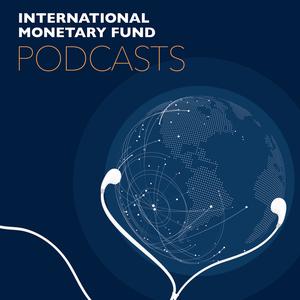 IMF Podcasts
IMF Podcasts
 Opinion Has It
Opinion Has It
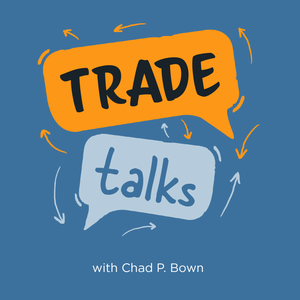 Trade Talks
Trade Talks
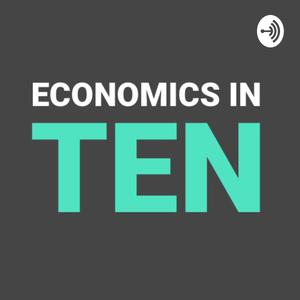 Economics In Ten
Economics In Ten
 Peterson Institute Events: Audio
Peterson Institute Events: Audio
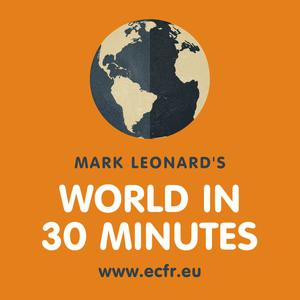 Mark Leonard's World in 30 Minutes
Mark Leonard's World in 30 Minutes